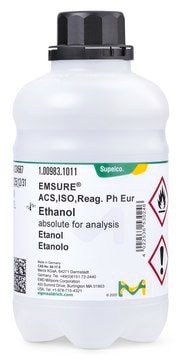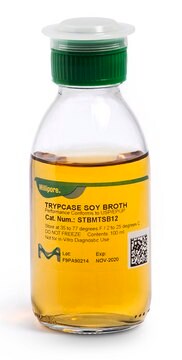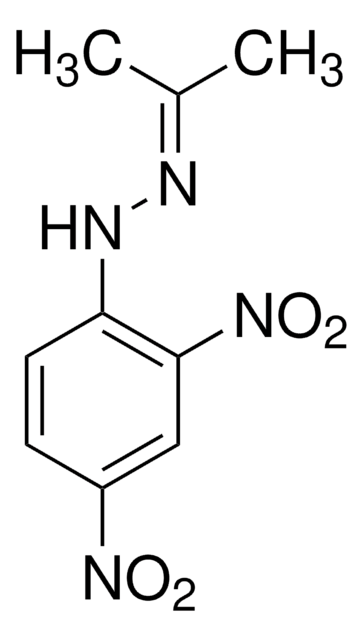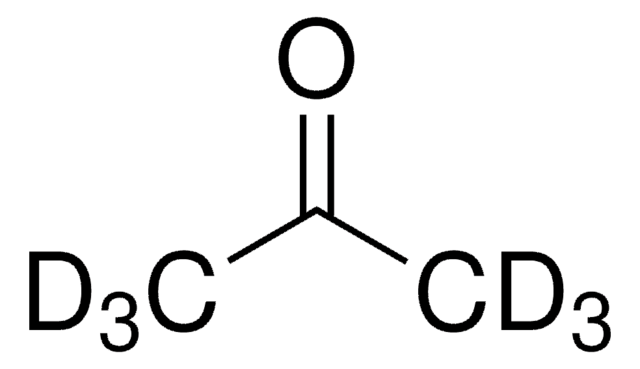1006801
USP
Acétone
United States Pharmacopeia (USP) Reference Standard
Synonyme(s) :
2-propanone
About This Item
Produits recommandés
Qualité
pharmaceutical primary standard
Densité de vapeur
2 (vs air)
Pression de vapeur
184 mmHg ( 20 °C)
Forme
liquid
Limite d'explosivité
13.2 %
Fabricant/nom de marque
USP
Disponibilité
not available in (Sales restrictions may apply)
Indice de réfraction
n20/D 1.359 (lit.)
pb
56 °C/760 mmHg (lit.)
Pf
−94 °C (lit.)
Densité
0.791 g/mL at 25 °C (lit.)
Application(s)
pharmaceutical (small molecule)
Format
neat
Chaîne SMILES
CC(C)=O
InChI
1S/C3H6O/c1-3(2)4/h1-2H3
Clé InChI
CSCPPACGZOOCGX-UHFFFAOYSA-N
Vous recherchez des produits similaires ? Visite Guide de comparaison des produits
Description générale
Application
Also used to prepare standard and system suitability solutions for the assay, and impurity analysis according to the given below monographs of United States Pharmacopeia (USP):
- Acetone
- Methyl Alcohol
- Doxorubicin Hydrochloride
Remarque sur l'analyse
Autres remarques
Produit(s) apparenté(s)
Mention d'avertissement
Danger
Mentions de danger
Conseils de prudence
Classification des risques
Eye Irrit. 2 - Flam. Liq. 2 - STOT SE 3
Organes cibles
Central nervous system
Risques supp
Code de la classe de stockage
3 - Flammable liquids
Classe de danger pour l'eau (WGK)
WGK 1
Point d'éclair (°F)
1.4 °F - closed cup
Point d'éclair (°C)
-17.0 °C - closed cup
Faites votre choix parmi les versions les plus récentes :
Certificats d'analyse (COA)
It looks like we've run into a problem, but you can still download Certificates of Analysis from our Documents section.
Si vous avez besoin d'assistance, veuillez contacter Service Clients
Déjà en possession de ce produit ?
Retrouvez la documentation relative aux produits que vous avez récemment achetés dans la Bibliothèque de documents.
Les clients ont également consulté
Notre équipe de scientifiques dispose d'une expérience dans tous les secteurs de la recherche, notamment en sciences de la vie, science des matériaux, synthèse chimique, chromatographie, analyse et dans de nombreux autres domaines..
Contacter notre Service technique









